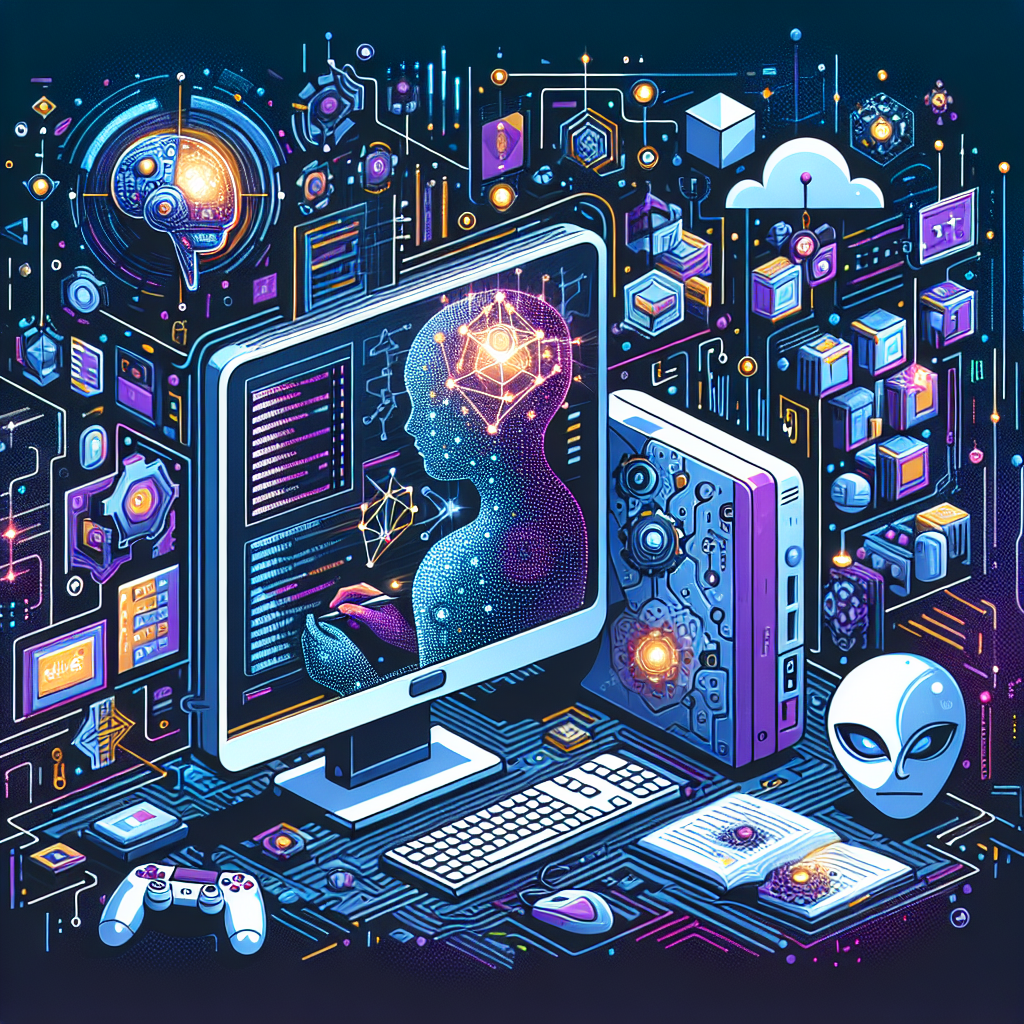Artificial Intelligence (AI) has been revolutionizing various industries, including the gaming industry. AI-assisted game development has become increasingly popular as developers seek to streamline the game creation process and enhance the overall gaming experience. From improving game design to creating smarter NPCs, AI has the potential to transform the way games are developed and played. In this article, we will explore the world of AI-assisted game development and discuss its impact on the gaming industry.
AI in Game Development
AI has long been used in video games to create intelligent non-player characters (NPCs) and enhance gameplay mechanics. However, with recent advancements in AI technology, game developers are now able to leverage AI to automate various aspects of game development, such as level design, character animation, and playtesting.
One of the key areas where AI is making a significant impact is in procedural content generation. Procedural content generation involves using algorithms to create game content, such as levels, maps, and assets, automatically. This can help developers save time and resources by generating large amounts of content quickly and efficiently. AI algorithms can analyze player behavior and preferences to create personalized game experiences, leading to more engaging and immersive gameplay.
AI can also be used to improve game design by analyzing player feedback and behavior to make data-driven decisions. By collecting and analyzing data on player engagement, retention, and satisfaction, developers can gain valuable insights into what makes a game successful and make informed decisions on how to improve it. AI algorithms can help predict player behavior and preferences, allowing developers to create games that are more tailored to their audience.
Another area where AI is making a significant impact is in playtesting. Playtesting is a critical part of game development, as it helps developers identify and fix bugs, balance gameplay mechanics, and ensure a smooth player experience. AI algorithms can automate the playtesting process by simulating thousands of game sessions and identifying potential issues before the game is released. This can help developers save time and resources by reducing the need for manual testing and improving the overall quality of the game.
AI-assisted game development is also revolutionizing character animation. Traditionally, character animation has been a time-consuming and labor-intensive process, requiring animators to create complex movements frame by frame. AI algorithms can now generate realistic animations automatically by analyzing motion capture data and learning from a large database of animation clips. This can help developers create more lifelike and expressive characters in less time, enhancing the overall immersion and realism of the game.
AI in game development is not without its challenges, however. Developers must ensure that AI algorithms are ethical and fair, as biased algorithms can lead to negative player experiences and backlash. Additionally, implementing AI in game development requires specialized knowledge and expertise, which can be a barrier for smaller indie developers. Despite these challenges, the potential benefits of AI-assisted game development are vast, and many developers are already reaping the rewards of incorporating AI into their workflows.
FAQs
Q: What are some examples of AI-assisted game development tools?
A: Some examples of AI-assisted game development tools include Ludiq’s Bolt, which uses AI algorithms to automate game design and scripting, and DeepMotion’s Animate 3D, which uses AI to generate realistic character animations.
Q: How can AI improve player engagement in games?
A: AI can improve player engagement in games by creating personalized game experiences, analyzing player behavior to make data-driven decisions, and automating playtesting to ensure a smooth player experience.
Q: What are some challenges of implementing AI in game development?
A: Some challenges of implementing AI in game development include ensuring that AI algorithms are ethical and fair, overcoming technical barriers, and acquiring the necessary knowledge and expertise to work with AI technology.
Q: How can developers learn more about AI-assisted game development?
A: Developers can learn more about AI-assisted game development by taking online courses, attending workshops and conferences, and experimenting with AI tools and technologies in their own projects.

